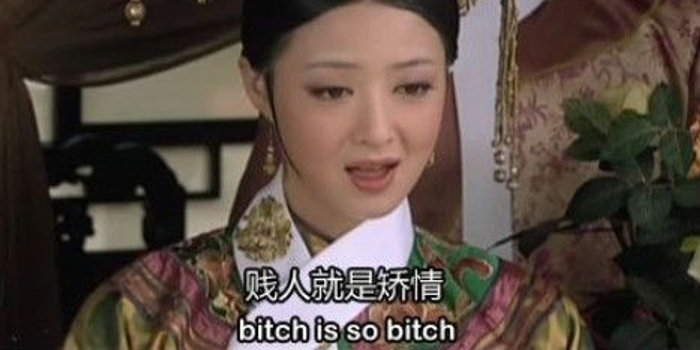Zhen Huan Zhuan: A Timeless Chinese Palace Drama and Cultural Phenomenon

Zhen Huan Zhuan: A Timeless Chinese Palace Drama and Cultural Phenomenon
Welcome to Scinorhythm Classroom! This article, exclusively published by ScinoRhythm, is about Chinese palace drama——Zhen Huan Zhuan. It's relatively easy and suitable for beginners learning Chinese. If you enjoy ScinoRhythm's courses, feel free to subscribe to our private tutoring sessions and enjoy various discounts.#Chinese learning #Mandarin language learning #Affordable online Chinese courses #Mandarin native teacher #HSK #palace drama #chinese drama #chinese history
Introduction
Released in 2011,Zhen Huan Zhuan (Empresses in the Palace) is a landmark Chinese palace drama 宫斗剧[gōng dòu jù (palace drama)] directed by Zheng Xiaolong and starring Sun Li. Set in the Qing Dynasty, it tells the story of Zhen Huan, a young noblewoman who enters the imperial palace and transforms from an innocent dreamer into a shrewd power player. Over a decade later, it remains a cultural icon—loved by audiences of all ages and celebrated for its rich storytelling and lasting influence.
Plot Summary
Zhen Huan initially enters the imperial harem后宫 [hòu gōng (imperial harem)] hoping to find true love with the emperor. However, she soon faces the brutal reality of palace politics 权谋[quán móu (power struggle)]. Betrayed by friends like An Lingrong and enemies like the arrogant Consort Hua and hypocritical Empress, Zhen Huan learns to use her wisdom to survive. She navigates alliances and betrayals, eventually rising to become the most powerful woman in the palace—though her journey costs her innocence and happiness. Key characters like the emperor (nicknamed "Big Fat Orange" by fans) and the loyal Mei Zhuang add depth to the story, making every episode memorable.
Domestic Influence: A Cultural Phenomenon
Zhen Huan Zhuan’s impact extends far beyond the screen. On social media:
Weibo: The hashtag #ZhenHuanZhuan has over 20.3 billion views, and #Level10 ZhenHuanScholar 甄学家[zhēn xué jiā (Zhen Huan expert)] boasts 320 million views and nearly 1 million discussions.
Douyin(tiktok in China): Related videos have accumulated 66.3 billion plays, with daily views exceeding 5 million even in 2025.
It has spawned countless viral memes 热梗[rè gěng (viral meme)] that have entered daily life:
"臣妾做不到啊" [chén qiè zuò bù dào a (I can’t do it, Your Majesty)]: The Empress’s line expressing helplessness, now used to convey inability
"贱人就是矫情" [jiàn rén jiù shì jiǎo qíng (Bitch is so bitch)]: Consort Hua’s iconic insult, often used to mock dramatic behavior.
"终究是错付了" [zhōng jiū shì cuò fù le (All my love was in vain)]: Zhen Huan’s lament over the emperor’s betrayal, now a phrase for unrequited love.
The series has become social currency 社交货币[shè jiāo huò bì (social currency)]:
Fans engage in "microscope viewing" —analyzing costumes, dialogue, and hidden details (e.g., a character’s button shaped like a tiny foot).
It inspires fan creations 二创[èr chuàng (fan creation)]: cosplay (e.g., Shanghai Halloween attendees dressing as Zhen Huan), workplace metaphors ("Zhen Huan studies" for office politics), and even Forbidden City visits (dubbed "Huanqiu Studio" by netizens).
Why It Matters for Chinese Learners
Zhen Huan Zhuan is more than entertainment—it’s a window into Chinese culture. It teaches colloquial expressions, reveals historical customs, and explores universal themes of love and power. For learners, it’s a fun way to practice listening, expand vocabulary, and understand how language is used in real-life contexts.
Vocabulary List
宫斗剧 (gōng dòu jù)– palace drama: A genre about power struggles in ancient imperial harems.
Example: 《甄嬛传》是中国最著名的宫斗剧之一。(Zhen Huan Zhuan is one of China’s most famous palace dramas.)
后宫 (hòu gōng)– imperial harem: Living quarters for the emperor’s concubines in ancient China.
Example: 清朝的后宫制度非常严格。(The imperial harem system in the Qing Dynasty was strict.)
权谋 (quán móu)– power struggle: Competition for influence and control.
Example: 这部剧充满了后宫的权谋。(This drama is full of power struggles in the harem.)
热梗 (rè gěng)– viral meme: A popular phrase/image spreading quickly online.
Example: "臣妾做不到啊"是《甄嬛传》的经典热梗。("I can’t do it" is a classic viral meme from Zhen Huan Zhuan.)
社交货币 (shè jiāo huò bì)– social currency: Something used to connect with others socially.
Example: 《甄嬛传》已经成为一种社交货币。(Zhen Huan Zhuan has become a social currency.)
矫情 (jiǎo qíng)– pretentious/dramatic: Behaving in an overly emotional way.
Example: 她的行为太矫情了。(Her behavior is too pretentious.)
错付 (cuò fù)– wasted affection: Giving love to someone unworthy.
Example: 她觉得自己的感情错付了。(She feels her affection was wasted.)
二创 (èr chuàng)– fan creation: Creative works by fans based on original content.
Example: 很多粉丝为《甄嬛传》做了二创视频。(Many fans made fan creation videos for Zhen Huan Zhuan.)
权谋者 (quán móu zhě)– power player: Someone skilled at power struggles.
Example: 甄嬛最终变成了一个厉害的权谋者。(Zhen Huan finally became a powerful power player.)
宫斗 (gōng dòu)– palace struggle: Competition for power in the harem.
Example: 宫斗是这部剧的核心内容。(Palace struggle is the core content of this drama.)


